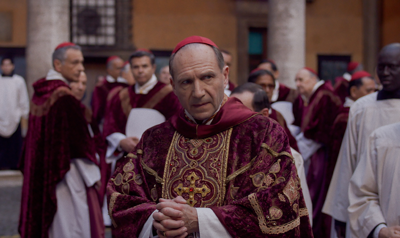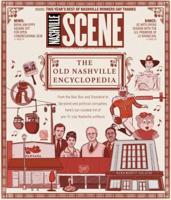When the pope dies, a process begins. Catholic cardinals from around the world gather in the Vatican City to begin the voting process for his successor. The process has many strict rules. For instance, all the cardinals must be locked in the Sistine Chapel with no outside interferences “cum clave,” or with key. The voting process continues until one cardinal has a two-thirds majority of the vote and becomes the new pope. The cardinals are still human; they have all the weaknesses and limitations of the rest of mankind, including lust, deceitfulness and a desire for power. When the voting process begins, some cardinals decide to play dirty to make their bid. This is the process of the conclave.
The pope is dead, and Cardinal Lawrence (Ralph Fiennes) is given the task of organizing the conclave to elect a new one. Several cardinals appear to be contenders, and coalitions form as cardinals put their support behind various candidates. As the proceedings continue, secrets are revealed, foul play is at hand and faith is tested. They're locked away from the outside world until they come to a decision. Who will be wearing the mitre when the chimneys begin to produce smoke?
Catholicism has many rules and traditions, including its hierarchical system of leadership. Positions in the church all come with many rules that leaders are expected to follow. But the clergy are also just men — sinners, as they call themselves — and are still susceptible to earthly desires. They still break the rules, but Conclave dares us to ask ourselves which of these rules matter and which are arbitrary. The film uses the structure of the Catholic church to examine the politics and foundations of the democratic process in a way that never criticizes the faith, but instead humanizes the clergy without the veneer of virtuism or cartoonish villainy often used to portray “holy men.” The cardinals here come across like colleagues gathered around the water cooler talking politics.
Director Edward Berger doesn’t hesitate to showcase his eye for cinematography, reminding us why he was able to take home so many technical awards with his previous film, 2022's All Quiet On The Western Front (available on Netflix). While more narrow in scope, Conclave still makes the most of its shots by using cinematography and blocking in a way that almost evokes the style of Akira Kurosawa in his thrillers The Bad Sleep Well or High and Low.
Conclave is the type of film that challenges its audience to think about what's important in being a leader through its critiques of the clergy. Its target audience is primarily religious progressives, but it can be enjoyed by anyone who loves thrillers and is willing to consider criticism of organized religion that is still respectful to the faith. The package is brought together by a career-best performance from lead actor Fiennes and the directorial prowess of Berger, making it one of the best films of the year.





